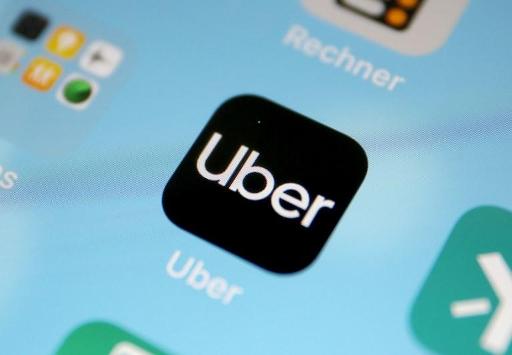Workers for platform companies like Deliveroo and Uber are currently considered independent contractors, meaning they don’t have access to basic labour rights.
The European Commission published its proposal on Thursday to improve working conditions for platform workers and a key component is a change in their employment classification.
Instead of letting platforms designate the workers who use them as “independent contractors,” a status that deprives them of the social rights and benefits that come with traditional employment, they will be presumed to be regular employees unless they or the platform provide evidence otherwise.
“By misclassifying employees as ‘self-employed’, platform companies like Uber and Deliveroo are blocking the access of platform workers to social protection,” European Parliament Member Kathleen Van Brempt (Vooruit) told The Brussels Times.
“Platform workers often work for wages that are too low and in the event of an accident pay for the costs themselves; they do not have access to paid leave and often work in precarious circumstances.”
Uber kicks back
Uber has already criticised the proposal, saying it would lead to more litigation, such as the case in Brussels where the courts recently banned Uber from operating.
“Uber is committed to improving the working conditions of the hundreds of thousands of drivers and couriers who rely on our app for flexible work,” a company spokesperson told The Brussels Times.
“We have worked with national governments across Europe and the rest of our industry on ways to strengthen platform work without risking the flexibility independent workers say they want.”
But, they say, the company is “concerned the Commission’s proposal would have the opposite effect – putting thousands of jobs at risk, crippling small businesses in the wake of the pandemic and damaging vital services that consumers across Europe rely on.”
We are concerned about the unintended consequences of blanket reclassification. This could put hundreds of thousands of #RideHailing drivers out of work and damage vital services that consumers across Europe rely on. https://t.co/z24iB26nnJ
— Move EU (@MoveEU_official) December 9, 2021
The company pointed to countries such as France as models for introducing more protections whilst preserving the flexibility that is central to Uber's business model.
Driver opposition
Mujahid Zaman, who drives with Uber, was also dismayed by the news: “I’m shocked and surprised. This would be a disaster – not only for me but for all the drivers.”
Zaman, like some other professional drivers in Brussels, has used the Uber app to build his own enterprise with a fleet of luxury cars and other drivers who use them.
“I'm in contact with a lot of drivers and most of them want to be self-employed and not work as an employee for Uber,” he said. “We have a company, we have a VAT number and we pay taxes to the government – we are not employees of Uber and we don't want to be employees.”
For him, a better solution would be to keep the self-employed status but work with Uber to negotiate a minimum fare.
“The option has to be given to the person who works with Uber, or Deliveroo, or whatever platform, if he wants to be self-employed or an employee. You can't impose on somebody that they are an employee of Uber.”
Future litigation and changes
Uber has always insisted that its drivers and couriers are independent contractors despite the fact that they have no control over setting prices for their services, are penalised or incentivised to work during hours of the company’s choosing and can be terminated and removed from the app for not meeting certain requirements.
When previously criticised for this model, Uber attempted to prove its workers were independent contractors by allowing them to set their own fares in California. As a result, 80% of users turned down rides that were quoting a higher fare and did not re-request a ride on Uber. This lead Uber to go back on the feature as it depleted users on both the passenger and driver sides.
Platform companies have lobbied hard in recent months to nip the European proposal in the bud. The version passed on Thursday does not take effect immediately and will need to be negotiated and approved by EU Member States along with the European Parliament.
Related News
- Long hours, unstable wages: a poor deal for food couriers
- Brussels taxi drivers feel like 'hostages of political game'
- UberEats gives 67 euros for lost work to courier forced to quarantine while wife battles Covid
The process could take years and leaves significant room for change, but proponents say they’re already on guard against more lobbying from the multinational companies that would dilute its key provisions.
“We want to ensure that this proposal is not watered down,” said Van Brempt. “Technological progress is a good thing. But that should also translate into social progress for everyone.”
We need to ensure decent working conditions for people working through digital labour platforms.
Today, we are proposing measures to improve them and to support the sustainable growth of digital labour platforms in the EU. #PlatformWork #SocialRights — European Commission ?? (@EU_Commission) December 9, 2021
The employee classification they are proposing would be triggered by a broad set of criteria that relates to the relationship between the worker and the platform company. The new rules would apply in all EU 27 countries by 2025 at the earliest.

